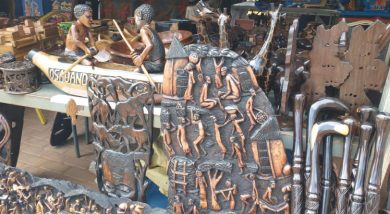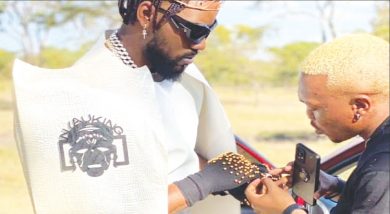Podcasts come under spotlight
Recently, podcasts have become an important and powerful tool local artists, celebrities and other big names use frequently to engage with their fans at a different level.
This is a plus for Malawi’s entertainment industry.
Those wondering what a podcast is, it is the new radio and TV except that you can always go back and access content at any time without worrying about missing an interview with your favourite artist or celebrity.
For creators, creatives and consumers, this is a privilege. But with every privilege comes responsibility.
It is a fact that the coming of podcasts has brought about positive strides in the entertainment industry and this cannot go unnoticed.
Podcast Malawi coordinator Gertrude Mlanga says the sudden emergency of podcasts has been beneficial in promoting talent and creativity in Malawi, especially the entertainment industry.

“The dawn of podcasts has helped the entertainment industry because it has allowed us to create a platform where we can document, while at the same time create an archive of different artists for them to share their stories and their creative endeavours,” she said.
Social media has allowed every creative to have a followership they constantly want to engage with by creating more content and podcasts exposed creatives and help them gain more fans.
Said Mlanga: “Most of the content that we make goes viral, not intentionally. But it goes out there and this puts these creatives out there and helps them connect with their fans and fellow creatives on a whole different level.
“The interviews, our engagement with creatives help them put their names in the limelight and this boosts their careers in different ways.”
Commenting on the same, Bright Chiligo, co-founder of Mikozi Facebook page, concurs with Mlanga that podcasts are indeed beneficial to the entertainment industry.
“If properly handled, podcasts can be and are beneficial to the industry as these have a capability to expand a creatives or an artist’s fanbase,” he said.
However, Chiligo suggests that if podcasts go beyond entertainment borders and into personal matters leading to defamation, then laws should apply.
He said: “Different issues are discussed on podcasts, including public figures. A lot is said about them, both positive and negative. People have different opinions on public matters and an opinion does not equate into a fact. But when one crosses the line into discussing one’s private and personal issues, I think this is what causes tension.”
Renowned musician Tuno explained how a podcast she was recently on helped her engage with her audience and allowed her to put herself in the limelight.
“Well, the podcast helped me to show people who I really am and it allowed me to show that I’ll always be the voice of the voiceless,” she said.
Going through social media, one cannot miss the mini debates and controversy around the use of podcasts.
“At first I thought this podcast thing was about fun and excitement, guess I was wrong. These people are now trying to generate hate among our celebrities. You can do better guys. What you are doing is not cool at all,” one Fredrick Kabuwe said on Facebook.
Another fan, Ril Brenda commented on the same: “A podcast ngosalakwa konse. A podcast amafunsa zimenezo komanso before that they ask you if you are comfortable ndimafunso omwe akufunsa so it’s up to the person kukana kuti izi ayi izi eya [Podcasts are not the problem. There are questions, yes, but before recording starts, they ask the guest if they are comfortable to answer or not].”
The controversy brings questions as to whether fans, creatives and content creators understand what a podcast should be and how it works.
Have players, especially in the entertainment industry, understood what podcasts are all about and how they are supposed to work or is it something we should be concerned about?
Chiligo said: “Almost everyone understands how podcasts work. Different issues are discussed on podcasts including public figures. If properly handled, podcasts are beneficial to the entertainmrnt industry.”
Tuno on the other hand agrees with Chiligo that Malawians do understand how podcasts work.
“Malawians do understand, they are learning every day, every time something entertaining is introduced, people learn. Honestly it’s positive vibes only,” she said.






One Comment